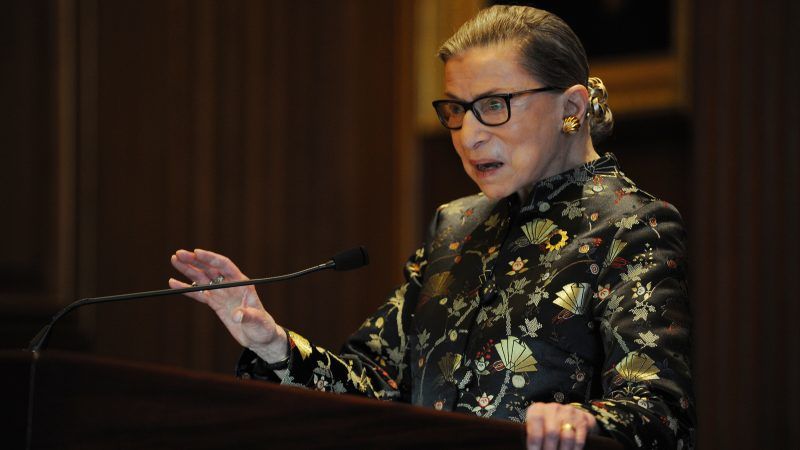Ruth Bader Ginsburg Calls Court Packing a 'Bad Idea'
The liberal jurist puts judicial integrity before partisan politics.

Supreme Court Justice Ruth Bader Ginsburg recently sat down with Nina Totenberg of National Public Radio for a wide-ranging conversation. One of their most notable exchanges centered on the issue of court packing.
Several presidential candidates have said they want to increase the number of justices on the Supreme Court in order to fill the bench with Democratic appointees. Ginsburg made it clear that she dissents from such proposals. "If anything would make the Court look partisan," Ginsburg said, "it would be that—one side saying, 'When we're in power, we're going to enlarge the number of judges, so we would have more people who would vote the way we want them to.'"
Ginsburg also said that it "was a bad idea when President Franklin Roosevelt tried to pack the court."
Ginsburg's opposition to court packing is no surprise. She is a serious jurist, after all, not a partisan hack. Of course she would look askance at such blatant meddling with the independence of the judiciary.
Ginsburg also knows her history. Roosevelt's court-packing scheme was defeated in 1937 in large part thanks to the principled opposition of members of Roosevelt's own party. In fact, one of Ginsburg's judicial heroes, the progressive legal icon Justice Louis Brandeis (appointed by a Democratic president, Woodrow Wilson), helped to lead that opposition.
Brandeis was mostly in sync with the goals of Roosevelt's New Deal. But the progressive jurist was deeply offended by Roosevelt's desire to interfere with a co-equal branch of government. So, working mostly behind the scenes, Brandeis went on the counterattack. Perhaps his most important move was to put the court-packing plan's chief congressional critic, Sen. Burton K. Wheeler (D–Mont.), in touch with Chief Justice Charles Evans Hughes, who had drafted a memo, signed by several justices, which made it clear that the Court not only opposed the president's power grab but also rejected Roosevelt's stated justifications as a self-serving sham. Wheeler unveiled that memo in the Senate to great political effect, and Roosevelt's scheme died a well-deserved death shortly after that.
Ginsburg is now following in Brandeis' admirable footsteps. She deserves credit for putting judicial integrity before partisan politics.
Related: "The New Deal Made Them 'Right': Remembering FDR's principled liberal opponents."
